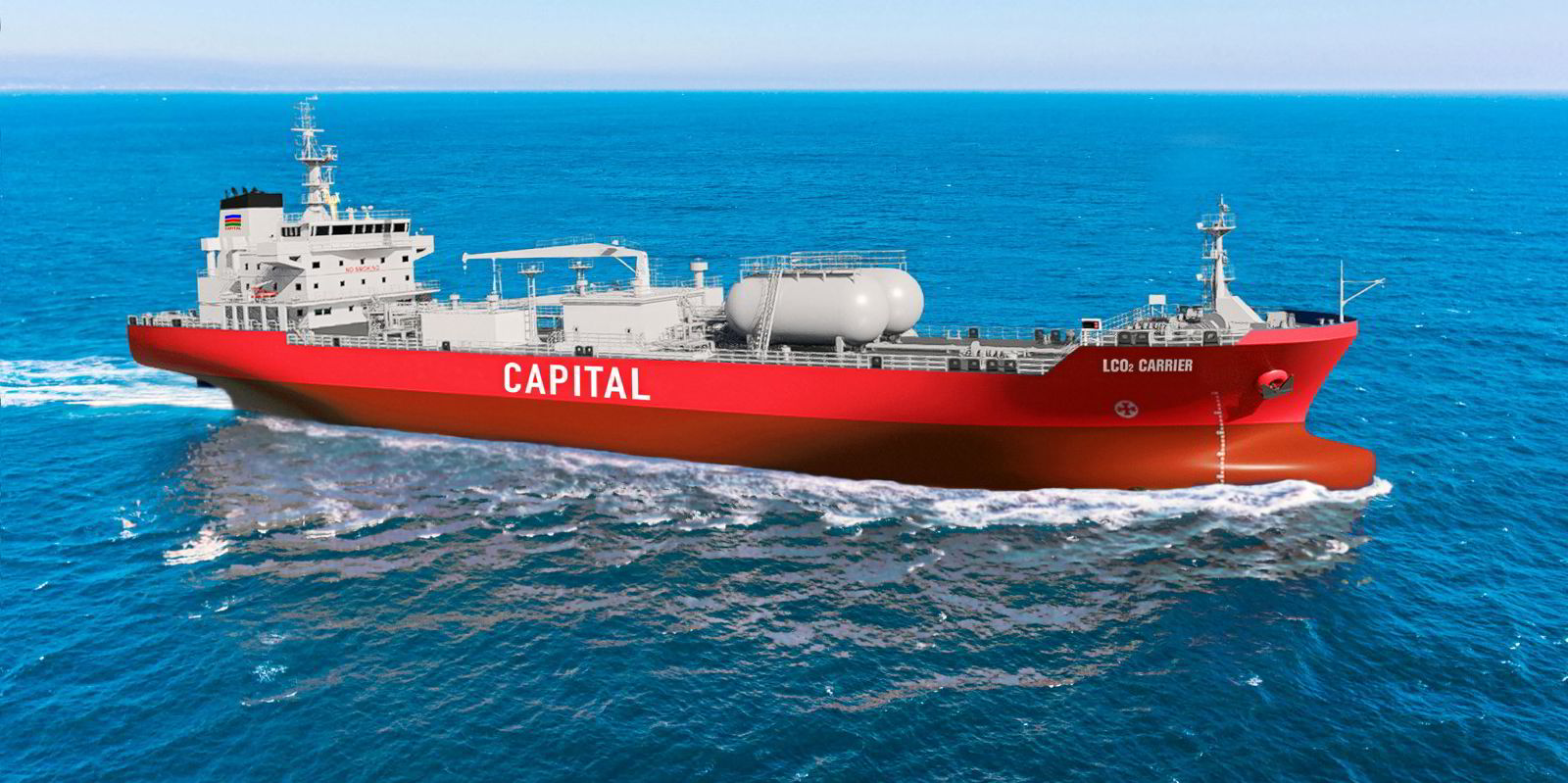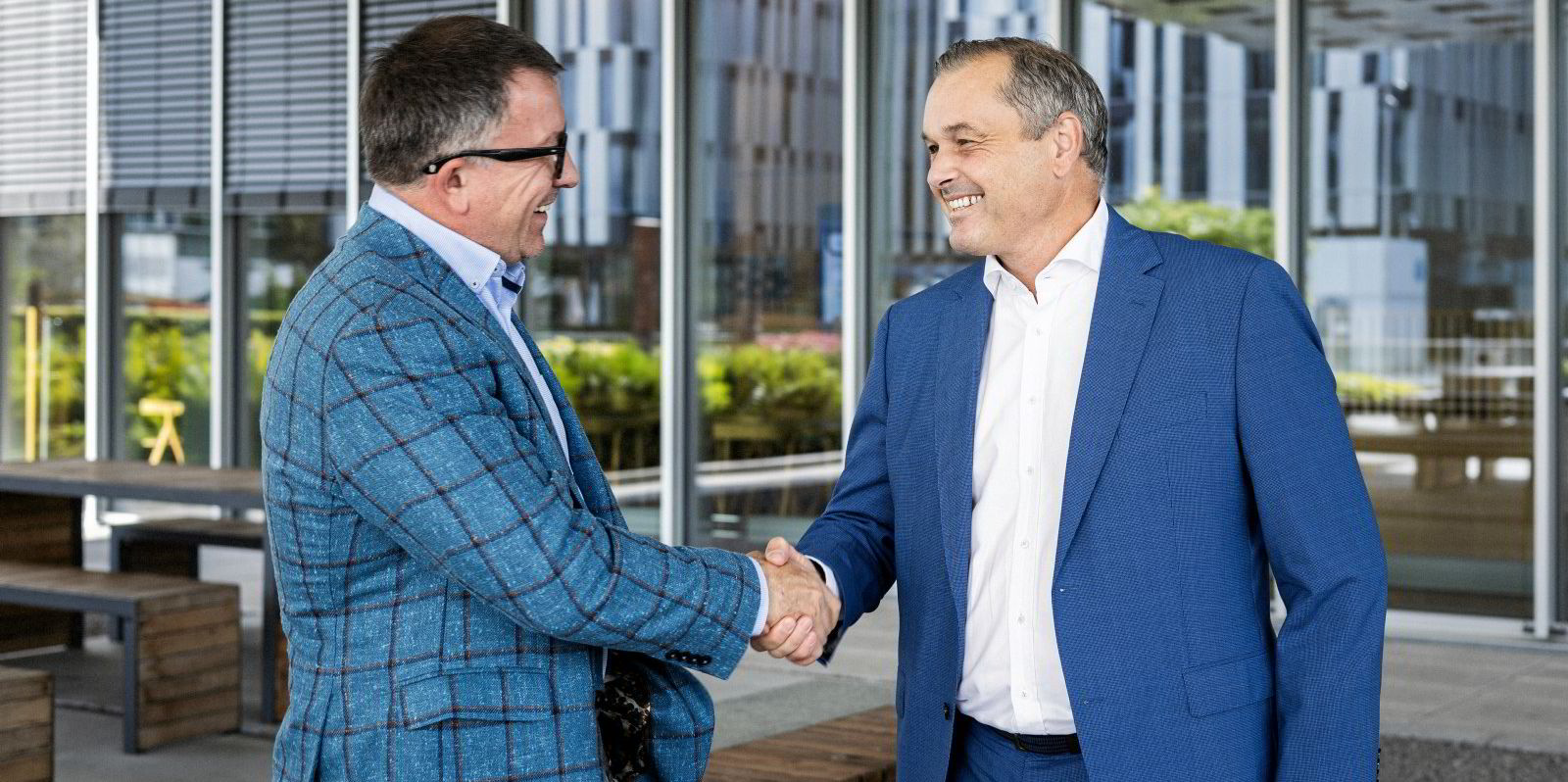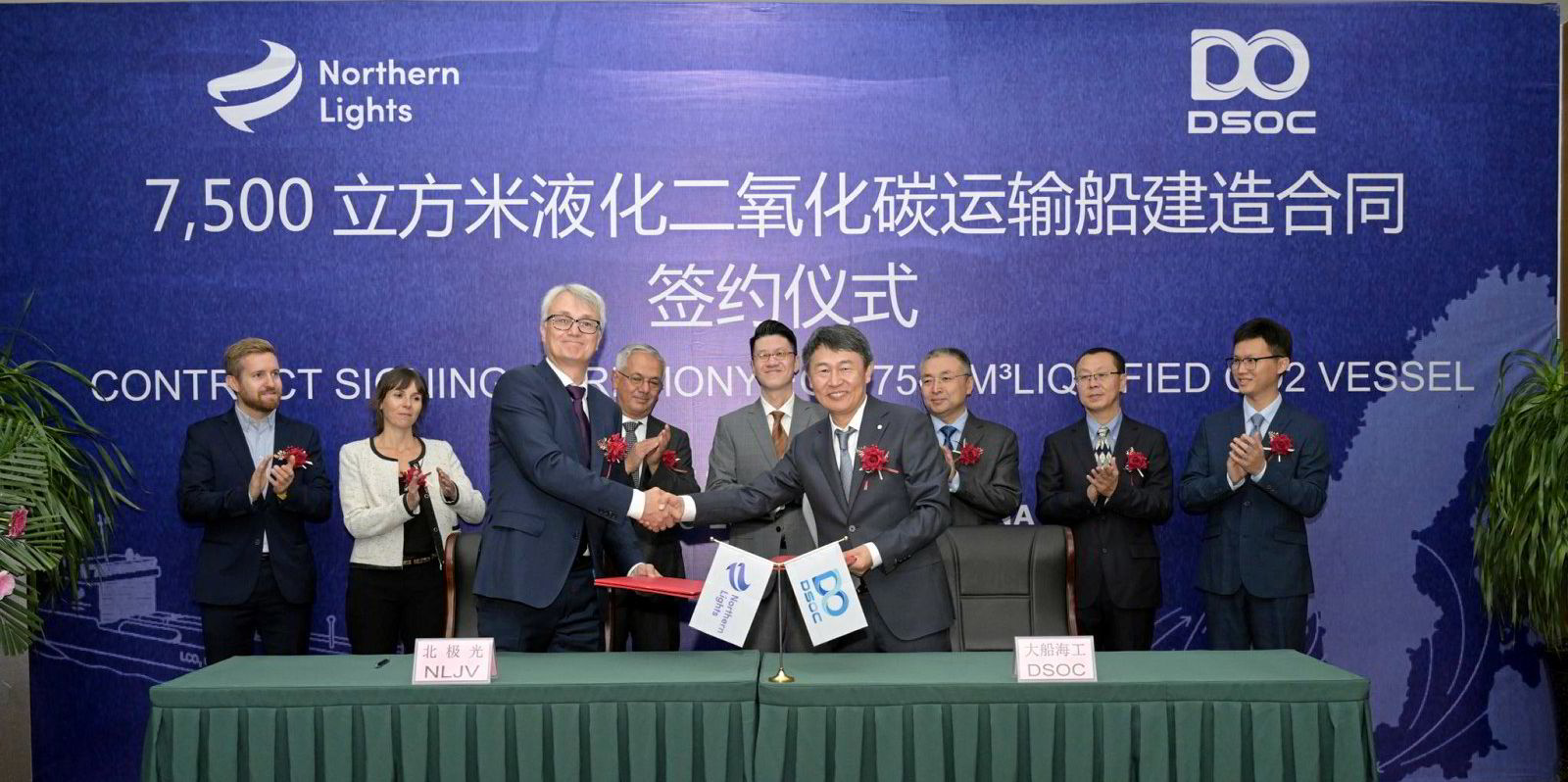Research consultants Rystad Energy estimates that there will be demand for 55 CO2 carriers by 2050 to serve planned carbon capture and storage projects.
It forecasts there will be around there 90m tonnes of captured carbon to be shipped annually by the end of the decade.
Norway will account for around 30% of the market in shipped carbon, followed by the Netherlands and the UK, making transportation in the North Sea the main market.
Rystad said shipping will provide a critical third leg to the transportation of captured carbon after onshore and offshore pipelines.
“CO2 shipping is the third piece of the puzzle and the most flexible solution for carrying carbon emissions over long distances at a relatively low cost,” Rystad Energy said.
The Northern Lights Project in Norway is set to be the first open-source CO2 transport and storage network opening in 2025.
Northern Lights has already ordered three liquefied CO2 (LCO2) carriers in China.
TradeWinds recently reported how Norwegian floating regasification specialist Hoegh LNG and North Sea oil and gas company Aker are developing carbon storage and transport for industrial emitters of CO2 in northern Europe.
The companies have formed a strategic partnership to gather, store, transport and inject CO2 for permanent storage in subsea reservoirs on the Norwegian Continental Shelf.
The project involves the use of LCO2 carriers.
Norway’s Knutsen NYK Carbon Carriers is also lining up orders for LCO2 carriers.
Other long-haul shipping routes between Japan and storage facilities in Australia are also being planned.
Rystad pointed out that carbon emissions from the use of conventional marine fuel oil could negate some of the environmental benefits of carrying CO2.
It suggested in the future this could be reduced through the use of LNG or blue methanol, but blue ammonia could slash the shipping emissions by 80% the company estimated.
“In an ideal world, CO2 tankers would use renewable fuels with no associated emissions.
However, these fuels are too expensive now to be economically viable,” said Lein Mann Bergsmark vice president of supply chain research at Rystad Energy





